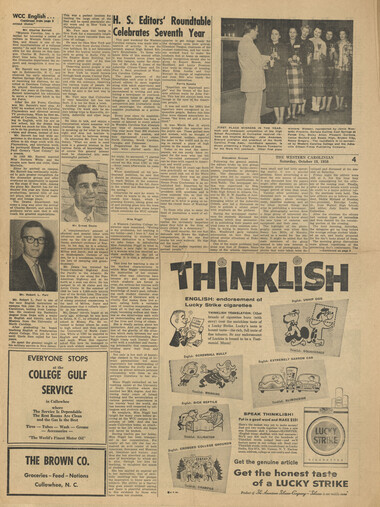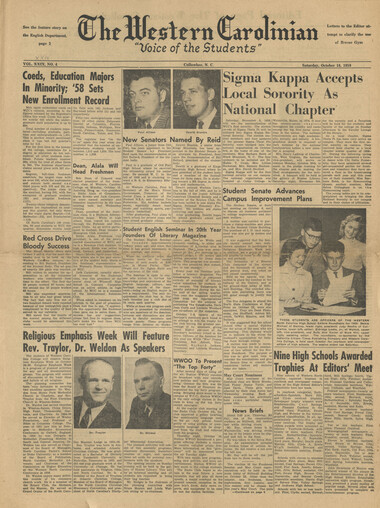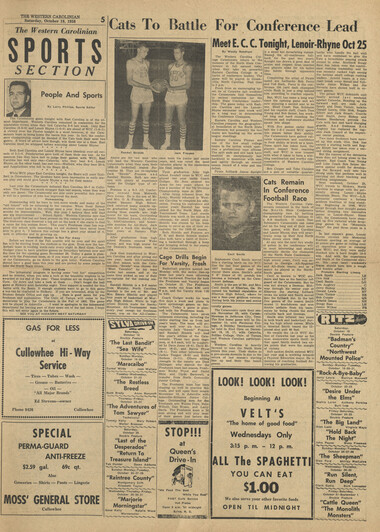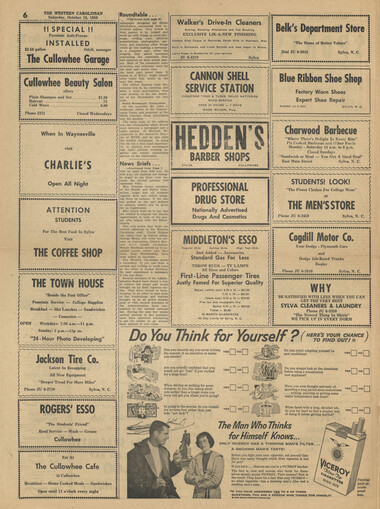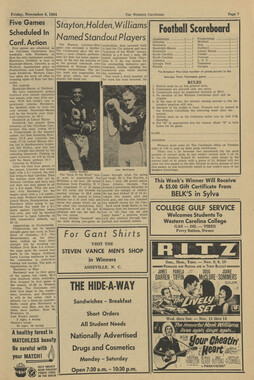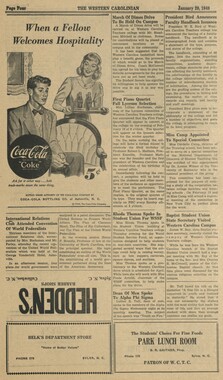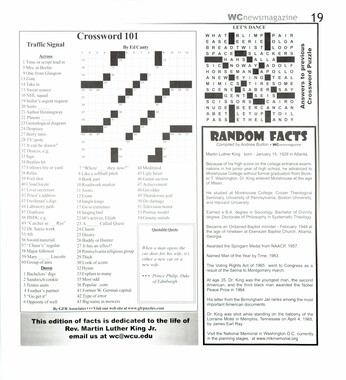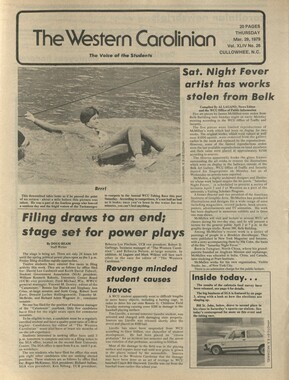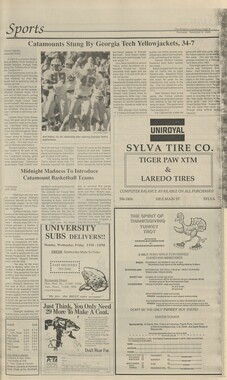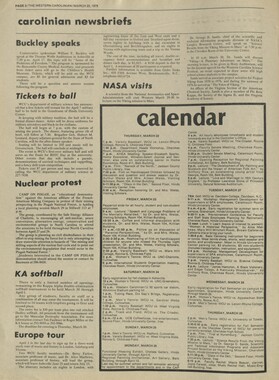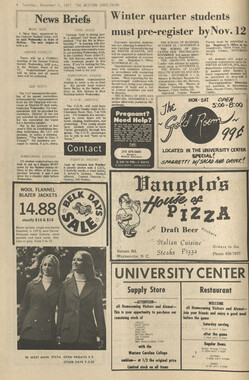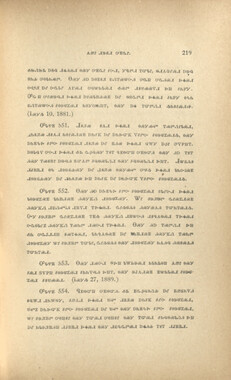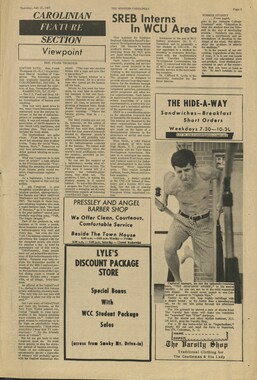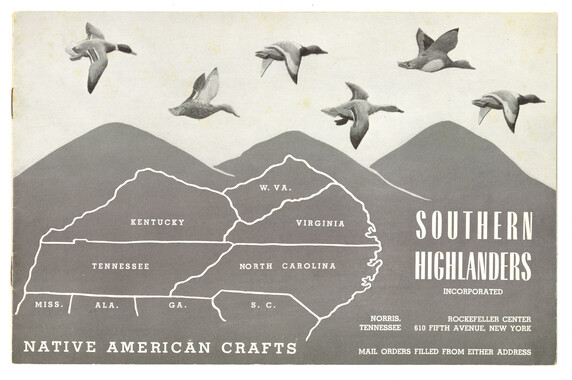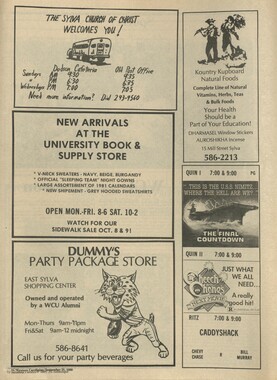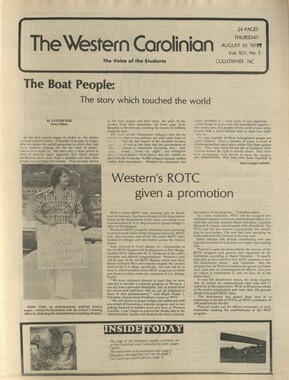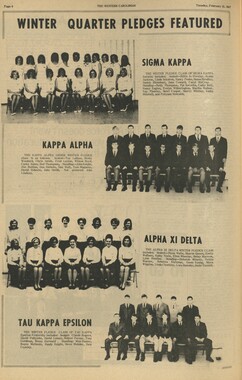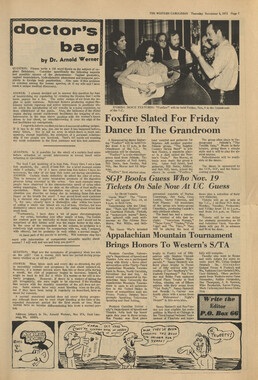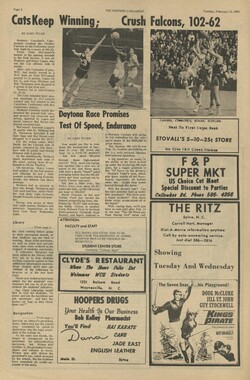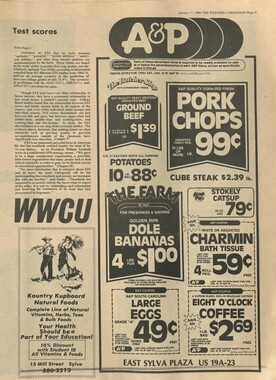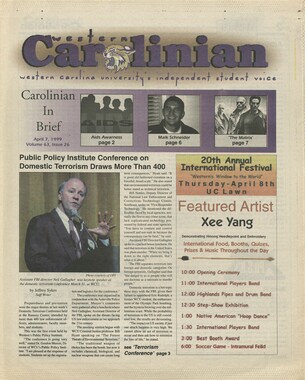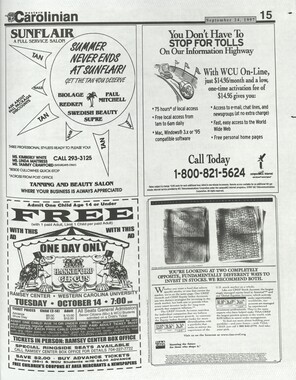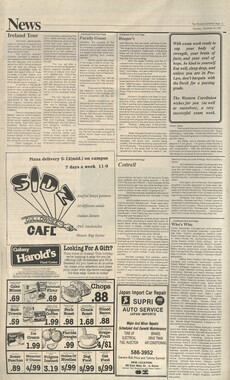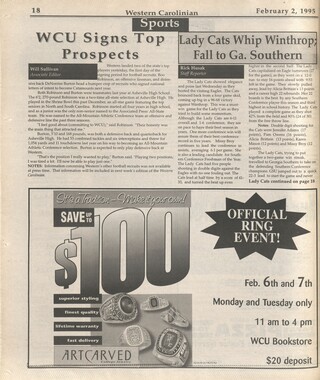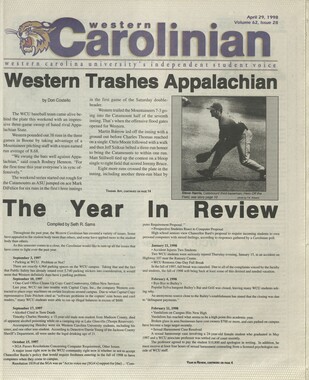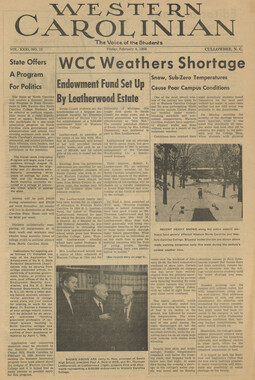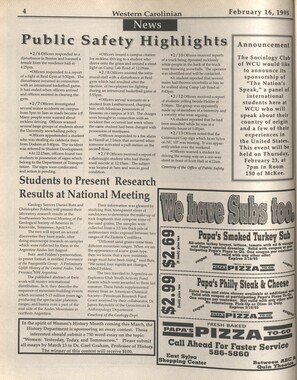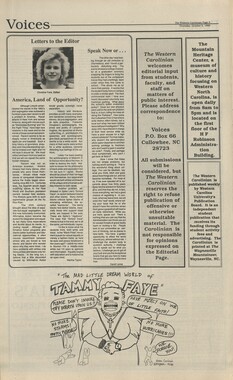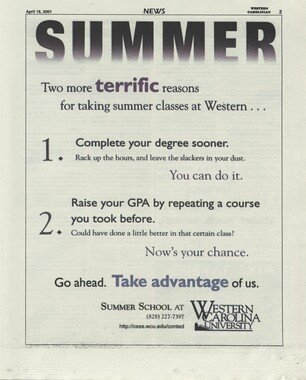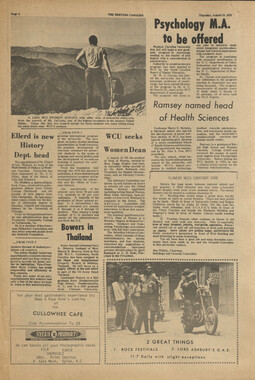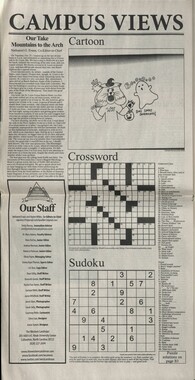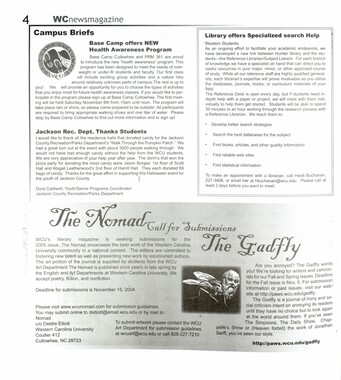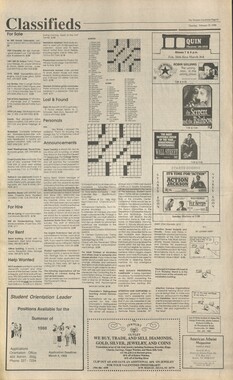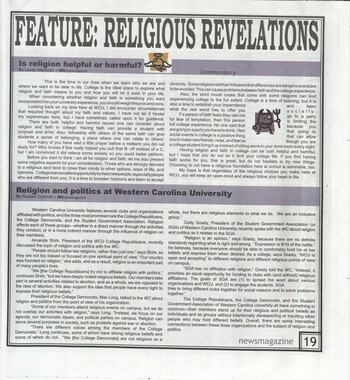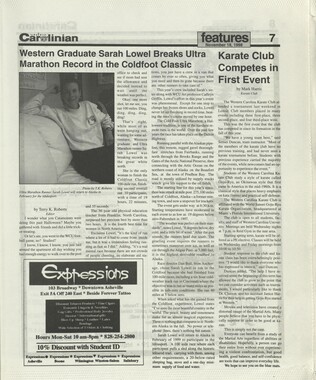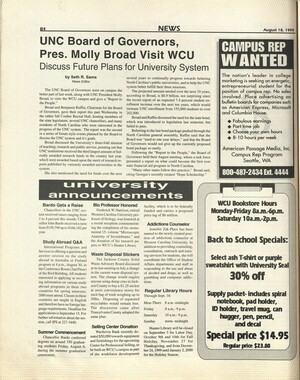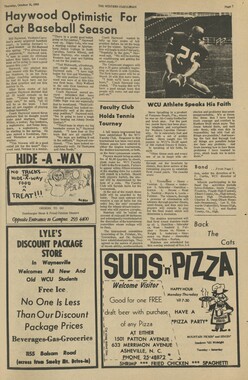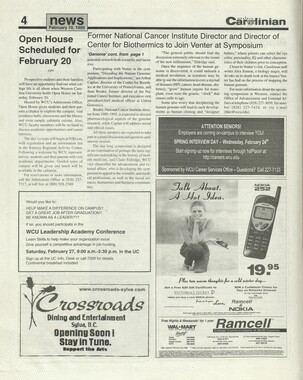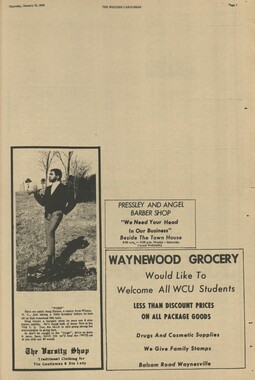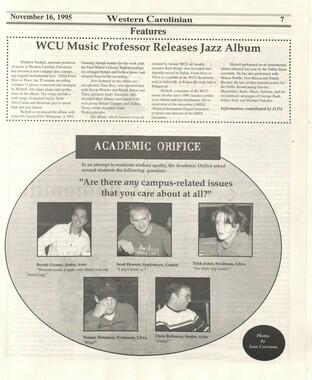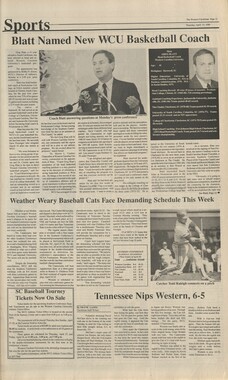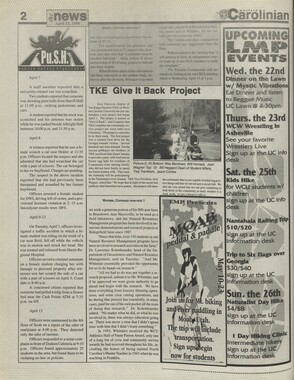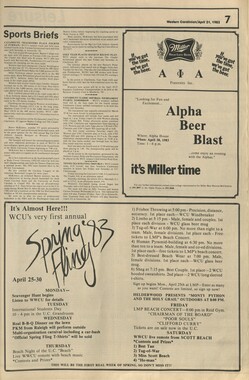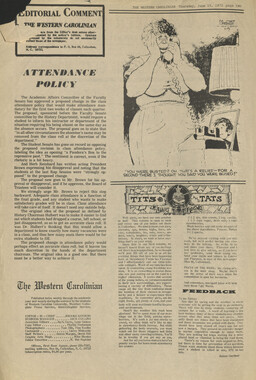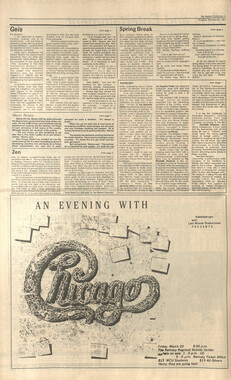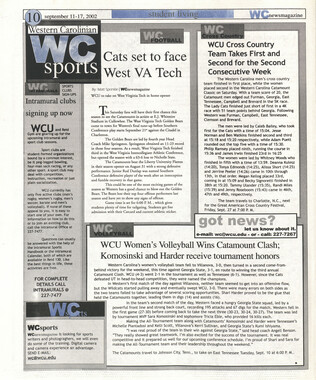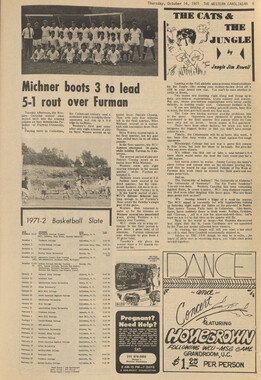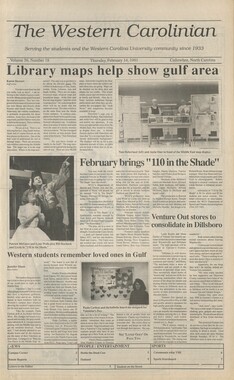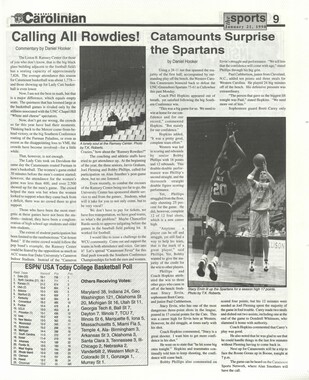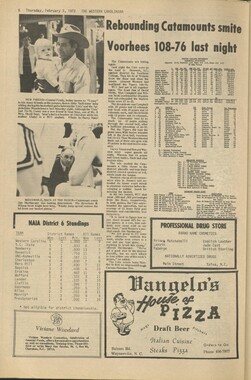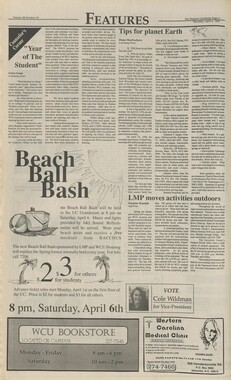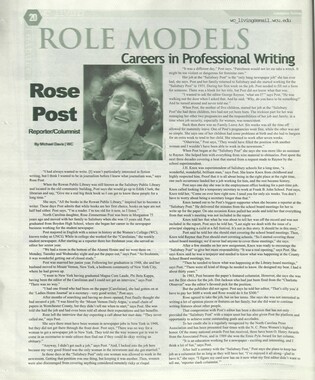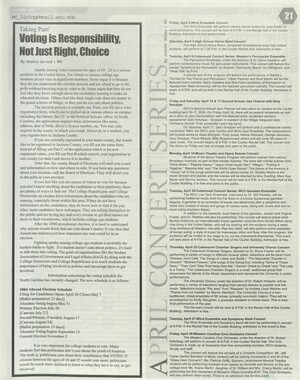Western Carolina University (20)
View all
- Canton Champion Fibre Company (2308)
- Cherokee Traditions (291)
- Civil War in Southern Appalachia (165)
- Craft Revival (1942)
- Great Smoky Mountains - A Park for America (2946)
- Highlights from Western Carolina University (430)
- Horace Kephart (941)
- Journeys Through Jackson (159)
- LGBTQIA+ Archive of Jackson County (85)
- Oral Histories of Western North Carolina (314)
- Picturing Appalachia (6873)
- Stories of Mountain Folk (413)
- Travel Western North Carolina (160)
- Western Carolina University Fine Art Museum Vitreograph Collection (129)
- Western Carolina University Herbarium (92)
- Western Carolina University: Making Memories (738)
- Western Carolina University Publications (2488)
- Western Carolina University Restricted Electronic Theses and Dissertations (146)
- Western North Carolina Regional Maps (71)
- World War II in Southern Appalachia (131)
University of North Carolina Asheville (6)
View all
- Allanstand Cottage Industries (62)
- Appalachian National Park Association (53)
- Bennett, Kelly, 1890-1974 (1463)
- Berry, Walter (76)
- Brasstown Carvers (40)
- Carver, George Washington, 1864?-1943 (26)
- Cathey, Joseph, 1803-1874 (1)
- Champion Fibre Company (233)
- Champion Paper and Fibre Company (297)
- Cherokee Indian Fair Association (16)
- Cherokee Language Program (22)
- Crowe, Amanda (40)
- Edmonston, Thomas Benton, 1842-1907 (7)
- Ensley, A. L. (Abraham Lincoln), 1865-1948 (275)
- Fromer, Irving Rhodes, 1913-1994 (70)
- George Butz (BFS 1907) (46)
- Goodrich, Frances Louisa (120)
- Grant, George Alexander, 1891-1964 (96)
- Heard, Marian Gladys (60)
- Kephart, Calvin, 1883-1969 (15)
- Kephart, Horace, 1862-1931 (313)
- Kephart, Laura, 1862-1954 (39)
- Laney, Gideon Thomas, 1889-1976 (439)
- Masa, George, 1881-1933 (61)
- McElhinney, William Julian, 1896-1953 (44)
- Niggli, Josephina, 1910-1983 (10)
- North Carolina Park Commission (105)
- Osborne, Kezia Stradley (9)
- Owens, Samuel Robert, 1918-1995 (11)
- Penland Weavers and Potters (36)
- Roberts, Vivienne (15)
- Roth, Albert, 1890-1974 (142)
- Schenck, Carl Alwin, 1868-1955 (1)
- Sherrill's Photography Studio (2565)
- Southern Highland Handicraft Guild (127)
- Southern Highlanders, Inc. (71)
- Stalcup, Jesse Bryson (46)
- Stearns, I. K. (213)
- Thompson, James Edward, 1880-1976 (226)
- United States. Indian Arts and Crafts Board (130)
- USFS (683)
- Vance, Zebulon Baird, 1830-1894 (1)
- Weaver, Zebulon, 1872-1948 (58)
- Western Carolina College (230)
- Western Carolina Teachers College (282)
- Western Carolina University (2005)
- Western Carolina University. Mountain Heritage Center (18)
- Whitman, Walt, 1819-1892 (10)
- Wilburn, Hiram Coleman, 1880-1967 (73)
- Williams, Isadora (3)
- Cain, Doreyl Ammons (0)
- Crittenden, Lorraine (0)
- Rhodes, Judy (0)
- Smith, Edward Clark (0)
- Appalachian Region, Southern (2569)
- Asheville (N.C.) (1923)
- Avery County (N.C.) (26)
- Blount County (Tenn.) (195)
- Buncombe County (N.C.) (1672)
- Cherokee County (N.C.) (283)
- Clay County (N.C.) (555)
- Graham County (N.C.) (236)
- Great Smoky Mountains National Park (N.C. and Tenn.) (519)
- Haywood County (N.C.) (3569)
- Henderson County (N.C.) (70)
- Jackson County (N.C.) (4909)
- Knox County (Tenn.) (35)
- Knoxville (Tenn.) (13)
- Lake Santeetlah (N.C.) (10)
- Macon County (N.C.) (420)
- Madison County (N.C.) (215)
- McDowell County (N.C.) (39)
- Mitchell County (N.C.) (132)
- Polk County (N.C.) (35)
- Qualla Boundary (982)
- Rutherford County (N.C.) (76)
- Swain County (N.C.) (2182)
- Transylvania County (N.C.) (270)
- Watauga County (N.C.) (12)
- Waynesville (N.C.) (86)
- Yancey County (N.C.) (72)
- Aerial Photographs (3)
- Aerial Views (60)
- Albums (books) (4)
- Articles (1)
- Artifacts (object Genre) (228)
- Bibliographies (1)
- Biography (general Genre) (2)
- Cards (information Artifacts) (38)
- Clippings (information Artifacts) (191)
- Copybooks (instructional Materials) (3)
- Crafts (art Genres) (622)
- Depictions (visual Works) (21)
- Design Drawings (1)
- Drawings (visual Works) (185)
- Envelopes (73)
- Exhibitions (events) (1)
- Facsimiles (reproductions) (1)
- Fiction (general Genre) (4)
- Financial Records (12)
- Fliers (printed Matter) (67)
- Glass Plate Negatives (381)
- Guidebooks (2)
- Internegatives (10)
- Interviews (815)
- Land Surveys (102)
- Letters (correspondence) (1013)
- Manuscripts (documents) (618)
- Maps (documents) (177)
- Memorandums (25)
- Minutes (administrative Records) (59)
- Negatives (photographs) (6090)
- Newsletters (1290)
- Newspapers (2)
- Notebooks (8)
- Occupation Currency (1)
- Paintings (visual Works) (1)
- Pen And Ink Drawings (1)
- Periodicals (193)
- Personal Narratives (10)
- Photographs (12976)
- Plans (maps) (1)
- Poetry (5)
- Portraits (4568)
- Postcards (329)
- Programs (documents) (181)
- Publications (documents) (2440)
- Questionnaires (65)
- Relief Prints (26)
- Sayings (literary Genre) (1)
- Scrapbooks (282)
- Sheet Music (2)
- Slides (photographs) (402)
- Songs (musical Compositions) (2)
- Sound Recordings (796)
- Specimens (92)
- Speeches (documents) (18)
- Tintypes (photographs) (8)
- Transcripts (322)
- Video Recordings (physical Artifacts) (23)
- Text Messages (0)
- A.L. Ensley Collection (275)
- Appalachian Industrial School Records (7)
- Appalachian National Park Association Records (336)
- Axley-Meroney Collection (2)
- Bayard Wootten Photograph Collection (20)
- Bethel Rural Community Organization Collection (7)
- Blumer Collection (5)
- C.W. Slagle Collection (20)
- Canton Area Historical Museum (2110)
- Carlos C. Campbell Collection (462)
- Cataloochee History Project (64)
- Cherokee Studies Collection (4)
- Daisy Dame Photograph Album (5)
- Daniel Boone VI Collection (1)
- Doris Ulmann Photograph Collection (112)
- Elizabeth H. Lasley Collection (1)
- Elizabeth Woolworth Szold Fleharty Collection (4)
- Frank Fry Collection (95)
- George Masa Collection (173)
- Gideon Laney Collection (452)
- Hazel Scarborough Collection (2)
- Hiram C. Wilburn Papers (28)
- Historic Photographs Collection (236)
- Horace Kephart Collection (861)
- Humbard Collection (33)
- Hunter and Weaver Families Collection (1)
- I. D. Blumenthal Collection (4)
- Isadora Williams Collection (4)
- Jesse Bryson Stalcup Collection (47)
- Jim Thompson Collection (224)
- John B. Battle Collection (7)
- John C. Campbell Folk School Records (80)
- John Parris Collection (6)
- Judaculla Rock project (2)
- Kelly Bennett Collection (1482)
- Love Family Papers (11)
- Major Wiley Parris Civil War Letters (3)
- Map Collection (12)
- McFee-Misemer Civil War Letters (34)
- Mountain Heritage Center Collection (4)
- Norburn - Robertson - Thomson Families Collection (44)
- Pauline Hood Collection (7)
- Pre-Guild Collection (2)
- Qualla Arts and Crafts Mutual Collection (12)
- R.A. Romanes Collection (681)
- Rosser H. Taylor Collection (1)
- Samuel Robert Owens Collection (94)
- Sara Madison Collection (144)
- Sherrill Studio Photo Collection (2558)
- Smoky Mountains Hiking Club Collection (616)
- Stories of Mountain Folk - Radio Programs (374)
- The Reporter, Western Carolina University (510)
- Venoy and Elizabeth Reed Collection (16)
- WCU Gender and Sexuality Oral History Project (32)
- WCU Mountain Heritage Center Oral Histories (25)
- WCU Oral History Collection - Mountain People, Mountain Lives (71)
- WCU Students Newspapers Collection (1920)
- Western North Carolina Tomorrow Black Oral History Project (69)
- William Williams Stringfield Collection (2)
- Zebulon Weaver Collection (109)
- African Americans (390)
- Appalachian Trail (35)
- Artisans (521)
- Cherokee art (84)
- Cherokee artists -- North Carolina (10)
- Cherokee language (21)
- Cherokee pottery (101)
- Cherokee women (208)
- Church buildings (189)
- Civilian Conservation Corps (U.S.) (111)
- College student newspapers and periodicals (2009)
- Dams (107)
- Dance (1023)
- Education (222)
- Floods (61)
- Folk music (1015)
- Forced removal, 1813-1903 (2)
- Forest conservation (220)
- Forests and forestry (1184)
- Gender nonconformity (4)
- Great Smoky Mountains National Park (N.C. and Tenn.) (181)
- Hunting (45)
- Landscape photography (25)
- Logging (119)
- Maps (83)
- Mines and mineral resources (8)
- North Carolina -- Maps (18)
- Paper industry (38)
- Postcards (255)
- Pottery (135)
- Railroad trains (72)
- Rural electrification -- North Carolina, Western (3)
- School integration -- Southern States (2)
- Segregation -- North Carolina, Western (5)
- Slavery (5)
- Sports (452)
- Storytelling (243)
- Waterfalls -- Great Smoky Mountains (N.C. and Tenn.) (66)
- Weaving -- Appalachian Region, Southern (280)
- Wood-carving -- Appalachian Region, Southern (328)
- World War, 1939-1945 (173)
Western Carolinian Volume 29 Number 04
Item
Item’s are ‘child’ level descriptions to ‘parent’ objects, (e.g. one page of a whole book).
-
-
WCC English ... Continued from page 3 second choice." Mr. Charles Barrett "Western Carolina has a potential for becoming a center of culture in Western North Carolina, and drama is one of the first manifestations of a cultured society." So said the man responsible for the drama on this campus. Charles M. Barrett, in his short time here, has gained for the Dramatics department the respect and recognition it now enjoys. Mr. Barrett was born 28 years ago in Robbinsville, N. C, and received his early education at Barium Springs High School. After receiving his diploma, he enrolled at Davidson College where he played freshman basketball. After two years at Davidson, Mr. Barrett interrupted his education to serve a two-year hitch in the Air Force. After the Air Force, Carolina was Mr. Barrett's next stop. At XJNC he worked with the Carolina Playmakers and directed several TV productions. When he first enrolled at Carolina, he was majoring in English, with his eye on law school, but the drama bug proved too much for him. He went on to do his graduate work in tele- • vision and drama, instead of law. Mr. Barrett has had wide experience in the drama field. In addition to his stage work with the Playmakers, and television work, he portrayed Simon Fernando in Paul Green's "Lost Colony" for a season. In 1955 Mr. Barrett married Miss Barbara White and the couple now have one child, Gene Martelle. Since he arrived on campus, Mr. Barrett has continually worked to gain greater recognition for the dramatics groups and offer everyone an opportunity to appear on the stage if they wish. Among the plans Mr. Barrett has for the theater this year are three major productions, several bills of one act plays, and a variety of readings and lounge plays. The Drama department has come a long way since the arrival of Charles Barrett, and under his guidance we're sure that it will reach his greatest expectations. Mr. Robert L. Parr Mr. Robert L. Parr is one of the new English instructors on campus this year. He is a native Carolinian, hailing from Lexington. He received his Bachelors degree from Duke with a major in English and history, and. his Masters from the University of North Carolina. After graduating he began teaching English at Presbyterian Junior College. This job he held ■until Uncle Sam called for two years. He spent the greatest length of his military service in New Jersey. This was a perfect location for visiting the large cities of the East and he spent practically every week end in New York or Philadelphia. Mr. Parr says that being in New York for a reasonable length of time is more valuable than one year of college. He says he likes New York and plans to visit there during Christmas holidays. He is not interested in what the typical tourist wants, such as going to Radio City or the Empire State Building, but spends a great deal of his time in observing quaint people. Observing quaint people is one of his favorite hobbies and while in New York he would browse through book stores, Central Park, stroll through Greenwich Village and ride the subways, observing the various types of people. He would walk about 40 blocks a day, which he says is the best way to see things. Mr. Parr says that Cullowhee is very beautiful but has one fault. It is too far from a town. Another hobby of Mr. Parr's is traveling. On week ends he enjoys taking trips to Knoxville, Atlanta, Asheville and other large cities. He likes to talk, and enjoys a conversation where someone will challenge his ideas. He believes in speaking up for what he thinks right and does not hesitate to criticize what he believes wrong. On education Mr. Parr has this theory, "What we seem to need most is a general interest in the various fields of knowledge, but of course this general interest must be channeled into some meaningful pattern." Mr. Ernest Deans A complementary amount of physical and mental labor with adventure and travel thrown in sums up the life of Mr. Ernest Deans, assistant professor of English. In his den, he is a scholar, well acquainted with the works of Milton and Joyce, and an expert on Shakespeare. Outside of his den, he is a woodsman, versed in the lore of camping and green- thumbery. Mr. Deans has traveled the Trans-Canadian Highway from the Pacific to the Atlantic. He has driven a car along the Pan- American Highway and as far north as a man can drive. He has camped in all 48 states and the Arctic Circle. In the summer of 1949 he took a 3,000-mile bicycle tour of the British Isles. This tour has given Mr. Deans such a wealth of strong personal connections to the land of Milton, Joyce and Shakespeare that it reflects heartily in his lectures. Mr. Deans' travels began at an early age. Although he was born in Selma, N. C, he attended grade school in Miami, Fla. He returned to Selma where he went to high school and then entered the University of North Carolina. While at UNC he majored in English and minored in science and math. When this reporter asked him how he managed to pick such widely separated fields EVERYONE STOPS at the COLLEGE GULF SERVICE in Cullowhee where The Service Is Dependable The Rest Rooms Are Clean and the Gas Is the Best Tires — Tubes — Wash — Grease — Accessories — "The World's Finest Motor Oil" THE BROWN CO. Groceries - Feed - Notions Cullowhee, N. C. H. S. Editors1 Roundtable Celebrates Seventh Year This past weekend the Western Carolina campus was made into a beehive of activity. It was the seventh annual High School Edi tor's Roundtable. To those who know little of this annual affair, it was founded seven years ago on this campus, under the direc tion of Mr. John E. Jones of the Asheville Citizen-Times and Dr. Paul A. Reid, president of Western Carolina College. The main purpose of the Roundtable each year is for high school editors to meet together along with adult supervisors and discuss and work out problems encountered in writing and publishing a newspaper or yearbook. The session helps in giving the delegates a better and fresher perspective into journalistic work and encourages the students to consider journalism as a profession. Every year since its establishment, the Roundtable has been a center of interest to every school in Western Carolina that attempts any type of journalistic work. This year more than 200 students registered for the session,, and they represented four states; North Carolina, South Carolina, Georgia, and Tennessee. Preparations for the Round- table were started early this for study, he answered, "I started to major in everything!" He received his MA from UNC in 1939 —three years afterwards he came to WCC. ' When questioned on his professional ambition, he said that it should be obvious. He wanted to teach Milton in the summer, Creative Writing in the fall, Joyce in the winter and Shakespeare in the spring." Otherwise he says he wants to do what he wants to do, or what makes him happy, which is planting flowers, taking grass out of and putting grass into the lawn of Rainrock, his grey stone house which overlooks the WCC campus. Miss Niggli A Western Carolina College instructor once remarked, "Writing is my profession, but teaching is my hobby—and I love it." And so communicating to students her sincere dedication to a "hobby," we take honor in introducing Mfiss Josephina Niggli in what is, perhaps, a new light in respect to a woman who has received acclaim erstwhile in the art of writing. It is also a reflection of love. This love for teaching is one of the marked characteristics in which Miss Niggli communicates the instruction of her courses. With what may otherwise have become dry and arid deserts which students are forced to cross, she embues her courses with the inspired waters of the vast knowledge of man's past, refreshing each student traveler over those pages of literature with a vitality that makes them live a- new; calling forth a veritable oasis of creative imagination, she leads all to that spa where time stops, becoming endless and timeless as she entertwines each with an understanding and perspective of the lives and living of others. She is deadly serious about her instruction. And yet, her recognition of the gravity of the situation which rests between her and her students notwithstanding, Miss Niggli treats each literary character with a confident and charming informality that consequently blushes anew their lives and writing. Not only is her well of knowledge steeped in the living of literary personalities; but more importantly her understanding of them disarms the stuffy and assumes an almost intimate personal relationship with them as she portrays literature to her students. Misss Niggli embarked on her teaching career at the University of North Carolina where she merited her MA degree. And following many years of formal training and the accumulation of various personal experiences in her travels 'bout the world, she has become well respected by colleagues and students alike. No neophyte, Miss Niggli had taught for many years before arriving an the WCC campus in the autumn of 1956. And she has made Cullowhee home, an attachment to her life which she hopes will never be broken. Having teachin gas her hobby, Miss Niggli has been transparent in her concentration. For nearly all- her life she has remained an avid reader of both American, European and Mexican art, literature and history. And thus she has absorbed an abundance of knowledge by which she is able, through her love for teaching, to enlighten the minds of students. She has applied an especial art to her instruction, that of skillfully instilling into her pledges the inspiration to know anew old subjects. Her ability as a teacher thus goes almost without saying; and there is plentiful attestation to this evidence by those who have been her students. quarter to get things ready for the delegates upon their arrival. Glendale Teague, chairman of the student committee, and her workers worked hard to make the students feel at home on campus. Special recognition should also be given to Rupert Bowen, Ann Sheffield, and Larry Freeman who were in charge of housing; Mary Ellen Austin and Gay Stewart in charge of registration and Jean Hill who heads the recreation committee. Parris Speaka "Reporters are important people" was the theme of the keynote address made by John Parris. This has not always been true though in the eyes of the American people. It was not until the 1930's that reporters were recognized as responsible people. Before this time they were classed somewhere between "the town set and a horse thief." It was World War II which really brought the reporter into the public eye. These gallant men and women, with no thought of their personal welfare, reported the news to the world and in doing so earned a place of high esteem in the minds of men. Today as we read the newspapers, we can surely have respect for the men who can tell our "so-called statesmen" what can be done with regard to American and world policy. We find that 25 years ago there was practically no way by which news could leak out of the White House since there was no press conferences. Today the White House Press Conference is an established fact. Reporters by the hundreds gather to bombard the president with questions and to cross examine him so that the American people can be in formed as to what is going on behind the closed doors of Washington. To those who plan to enter the field of journalism a word of advice: "Reporters must be made to realize the extremely important place they hold in the lives of every citizen in a democracy." "The good reporter, the one that demands and draws the highest compensation, is the one that cracks his own walnuts. He digs out the meat." "And that makes reporters important people." FIRST PLACE WINNERS IN THE YEAR- book and newspaper competition of the High School Roundtable at Cullowhee received ribbons and trophies Saturday. John Anderson, Brevard publisher and president of the North Carolina Press Assn., roundtable speaker, Is shown presenting a trophy to Sharon Tomberlin for the Mars Hill yearbook. Other first place winners: Webster, represented by Jamie Monteith; Franklin, Darlene Collins; Cool Springs at Forest City, Becky Allen; Pleasant Gardens, Janice Shuford and Swain High, Bryson City, Nancy Gregory. The roundtable is co-sponsored by Western Carolina College and the Asheville Citizen-Times Publishing Company. Discussion Groups Following the general session, the editors broke up into groups of their particular fields—-newspapers, yearbooks, or photography. The discussions in each group were led by experts who had exceptional qualifications in their fields. The newspaper section was supervised by Mrs. Jackie Woodward who came from Hoke High School in Atlanta, Ga., and by Mr. H. W. Sandlin of Anderson, S. C; Mr. Richard Wynne, managing editor of the Asheville Citizen, also led a discussion on how to publish a school paper with emphasis on the pictures. During the newspaper conference the students discussed the problems which they encountered in publishing their papers and tried come to some common solution in trying to improve them. Mrs. Woodward gave valuable information on how they had solved similar situations at Hoke High School. One of the major problems that arose was that of finance. Since many of the schools represented THE WESTERN CAROLINIAN Saturday, October 18, 1958 were small and had little operating capital, it was a genuine problem. Since advertising is almost the sole source of income, it was discussed how the papers might offer discounts on advertisements which would run for a longer period of time than usual. Various other problems were discussed such as improving the feature pages, photo arrangement, headline makeup, and all the other myriad things that arise in publishing a newspaper. The photography section drew a large group of interested students who desired to know about the new types of cameras and equipment and their uses. The highlight of the photography session was when Miss Nancy Lee Mills, of Murphy, served as a model for the students. It might be added that the male members of the group seemed to take new interest in the fine art of photography. The photos that were taken were de veloped and discussed at the session on Saturday. Friday night the editors were still at it, but this time they were campaigning for the officers of the coming year. Finally, after a heated debate which would do credit to a major political rally, the elections were held. The new officers are as follows: president, Dickie Michael of Stanley; vice-president, Eldridge Leake, Jr., from Walnut High School; and editor, Judy Renfro from Cullowhee. After the elections the editors had various types of recreation and then danced for the remaining portion of the evening. The next morning, Saturday, the delegates got up long before the average college student blinked an eye, and busily prepared for the day's tasks ahead of them. The morning group discussions were almost repetitions of the preceeding day's conferences. The —Continued on page 6 I I H1 Mm Ww ENGLISH: endorsement off Lucky Strike cigarettes English: UNHIPDOG THINKLISH TRANSLATION: Other brands of cigarettes burn (with envy) over the matchless taste of a Lucky Strike. Lucky's taste is honest taste—the rich, full taste of fine tobacco. So any endorsement of Luckies is bound to be a Tasti- monial. Mmm! SCREWBALL BULLY English: Thinklish: SQUAREDALE :XTREMELY NARROW CAR . Thinklish: MEANIAC English: SICK REPTILE Thinl inkUsb: suwousmE Thinklish: ILLIGATOR r , h. CROWDED English: ^ COLLEGE GROUNDS SPEAK THINKLISH! Put in a good word and MAKE $25! Here's the easiest way yet to make money! Just put two words together to form a new one. Example: slob + lobster=SLOBSTER. (English trans: shellfish with bad manners.) We'll pay $25 each for the hundreds of Thinklish words judged best—and we'll feature many in our college ads. Send your Thinklish words (with translations) to Lucky Strike, Box 67A, Mt. Vernon, N. Y. Enclose name, address, college or university and class. Get the genuine article CIGARETTES Thinklish: OKAMPus ej.ro. Get the honest taste of a LUCKY STRIKE Product of <JAe, JVnwweovn, Uuvcceseo-kxHruxwrw — Uavcceet^ is cur viiddlc name
Object
Object’s are ‘parent’ level descriptions to ‘children’ items, (e.g. a book with pages).
-
The Western Carolinian is Western Carolina University’s student-run newspaper. The paper was published as the Cullowhee Yodel from 1924 to 1931 before changing its name to The Western Carolinian in 1933.
-
